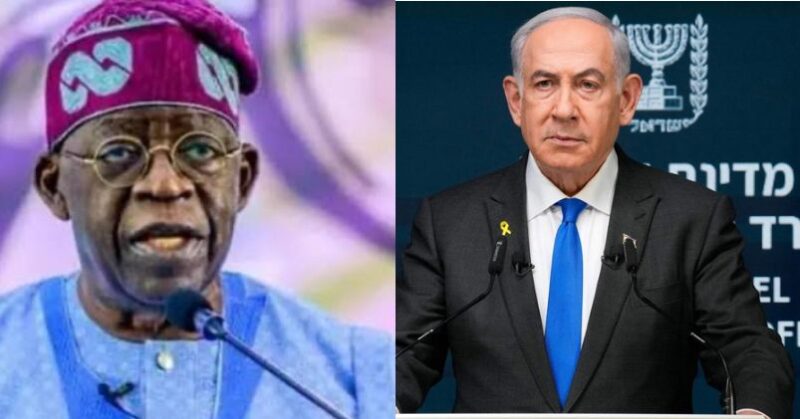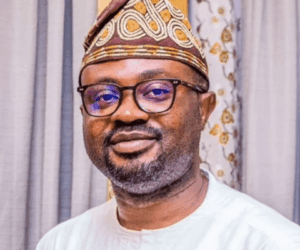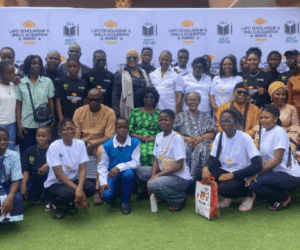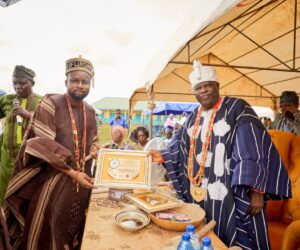Nigeria’s foreign policy has always been most credible when it is principled, pragmatic, and independent. In a world newly polarised by great-power rivalry and by the war between Israel and Hamas—and amid a documented surge in antisemitic incidents from Washington to Paris to Sydney—Nigeria’s best course is neither retreat nor alignment. It is strategic neutrality: a clear, non-aligned posture that keeps diplomatic doors open, protects Nigerians at home and abroad, and maximises economic opportunity while upholding humanitarian law and rejecting bigotry in all forms.
A tradition worth keeping
From independence, Abuja anchored external relations on non-alignment and African priority. That stance let Nigeria build credibility across divides—Western and Eastern, Arab and Israeli—while leading peacekeeping and mediation in its region. The principle was never about moral indifference; it was about freedom of manoeuvre to advance Nigerian interests and values without being conscripted into others’ quarrels.
Nigeria’s ties with Israel illustrate how flexibility serves national interest. Abuja severed relations after the 1973 Arab-Israeli war and restored them in 1992, then gradually normalised high-level engagement, including a 2013 state visit in Jerusalem. That arc reflects neither hostility nor fealty, but calibrated diplomacy—precisely the posture Nigeria needs now.
The new context: polarisation and a spike in antisemitism
The Israel–Hamas war has reordered global conversations—from campus protests to multilateral diplomacy—often reducing complex realities to binaries. Alongside this has been a measurable rise in antisemitic incidents worldwide since October 2023, including arson attacks, shootings near Jewish institutions, and record hate-crime tallies reported by watchdogs and governments. Nigeria cannot ignore this tide; it should meet it with clarity: condemn antisemitism unambiguously, reject collective blame, and insist that criticism of any government never becomes hatred of a people.
Global survey data reinforce the warning: large shares of adults across many countries report antisemitic beliefs, with denial or ignorance of the Holocaust disturbingly common among younger cohorts. As Nigeria navigates online discourse and youth politics, those findings are a cautionary flag against imported hate amplified by algorithms.
What neutrality looks like in practice
1) Principle-first multilateralism. Nigeria should continue voting case-by-case at the United Nations, guided by international humanitarian law and the protection of civilians. Abuja supported General Assembly calls for a humanitarian truce and later for an immediate ceasefire; that approach—human-centric, rules-based, and independent of blocs—should remain the template.
2) Two-track engagement. Maintain full, functional ties with Israel—while sustaining robust relations with the Palestinian Authority and key Arab and Muslim partners. Engagement is leverage: it allows Abuja to press for humanitarian access, hostage releases, and de-escalation, and to channel African perspectives into a process often dominated by external powers. This dual track also reassures Nigeria’s diverse communities that foreign policy is not a proxy for sectarian preference.
3) Economic pragmatism without dependency. Israel is a niche but useful partner in water technology, drip irrigation, agritech, health innovation, cybersecurity, and emergency response. Nigeria’s trade with Israel is modest but real; it can grow on Nigerian terms—transparent, competitive, and tied to local value-addition, not just import contracts. Abuja should prioritise technology transfer, pilot projects in climate-smart agriculture, and joint ventures that create Nigerian jobs. At the same time, diversify suppliers so no single partner can weaponise access.
4) Guardrails at home. Neutrality requires domestic resilience. That means sustained investment in interfaith dialogue, rapid response to hate crimes (including antisemitic attacks), and a clear government communication line distinguishing legitimate policy critique from bigotry. Nigeria should pair this with digital-literacy campaigns and partnerships with platforms to throttle disinformation that can inflame communal tensions.
5) People-to-people protections. Nigerian pilgrims, students, and workers in or travelling to Israel—and Nigerians of Jewish faith—deserve specific safety planning: consular hotlines, evacuation protocols, and cooperation with host authorities. Protecting citizens is not a concession to any side; it is the state’s first duty.
Why neutrality serves Nigeria’s interests
It preserves strategic autonomy. Non-alignment keeps Abuja free to say “yes,” “no,” or “not yet” based on facts, not faction. In a period when major powers frame every choice as a loyalty test, that freedom is priceless.
It enhances mediator credibility. West Africa still looks to Nigeria to broker and stabilise. A visibly even-handed Middle East posture protects Abuja’s standing when it asks neighbours to compromise—and aligns with its long record of peace operations and regional leadership.
It protects national cohesion. Nigeria’s strength is its pluralism. A foreign policy that appears to favour one identity over the other risks importing overseas polarisation into local politics. Neutrality signals that the federal government stands above sectarianism while enforcing a single standard against hate, including antisemitism and Islamophobia alike.
It expands economic options. Technology partnerships with Israel can complement (not replace) cooperation with Europe, the Gulf, China, India, and others. When procurement is competitive and transparent, Nigeria secures better prices, stronger technology transfer, and less risk of capture.
Concrete steps Abuja can take now
- Codify a “principled neutrality” note within the Ministry of Foreign Affairs’ guidance: support for international humanitarian law, opposition to targeting civilians and hostages, defence of religious freedom, and rejection of hate speech—including antisemitism—at home and abroad.
- Stand up a Nigeria–Israel Opportunity Desk inside MFA/Trade: map sectors where Israeli firms have a comparative advantage (micro-irrigation, desalination, medtech, emergency medicine, cybersecurity). Require local-content plans, university partnerships, and training quotas in every deal. Publish impact metrics annually so the public sees jobs and skills, not just headlines.
- Pair every Israeli track with an Arab-world track. For each MOU signed with an Israeli entity, pursue an equivalent cooperation instrument with partners in the UAE, Egypt, Saudi Arabia, Jordan, Qatar, or Morocco—especially on energy, logistics, and food security. Balance is both symbolism and strategy.
- Establish a Humanitarian Channel. Work with trusted NGOs and UN agencies to move medical supplies and relief where needs are acute. Nigeria can contribute modest funds, pre-positioned pharmaceuticals, or clinical teams, earning moral capital without entanglement.
- Create a Consular Safety Framework for Nigerians in Israel and the Palestinian territories: real-time travel advisories, encrypted registration portals, and pre-negotiated evacuation corridors with partners. Periodically test the plan.
- Name antisemitism—and other hate—clearly. In public statements and school curricula, embed definitions that separate policy disagreement from prejudice. Encourage universities and tech platforms to monitor and respond to harassment and doxing while protecting free debate. The government can convene faith leaders to issue a joint code of conduct for online and offline political expression.
- Invest in fact-checking and digital hygiene. Fund a nonpartisan consortium of Nigerian newsrooms, researchers, and civil society to track cross-border disinformation about the conflict, publish regular briefs, and coordinate with platforms on takedowns when content crosses into incitement.
- Leverage multilateral votes for leverage, not theatre. Where texts genuinely advance civilian protection or de-escalation, vote yes. Where they are performative or one-sided, abstain and explain. Nigeria’s recent votes for humanitarian pauses and ceasefire were consistent with that approach; keep it anchored in law, not geopolitics.
READ ALSO; Nigerian student in Israel recounts ordeal during Israel-Iran war
What success would look like
- Economic: A small but growing pipeline of Israeli-Nigerian projects delivering visible gains in crop yields, water access, and emergency care; young Nigerian engineers trained through exchange programmes; and a steadily improving trade balance without over-reliance on any single supplier.
- Diplomatic: Abuja consulted as a credible voice in MENA deliberations at the AU and UN because it is neither reflexively pro- nor anti- any party.
- Social: Lower incidence of hate crimes and communal flashpoints tied to overseas events, thanks to better public communication, education, and policing—and an unmissable official line that bigotry will be prosecuted.
The moral centre
Neutrality must not be confused with moral silence. Nigeria should continue to affirm two truths at once: Israeli civilians have the right to live free from terror and hostage-taking; Palestinian civilians have the right to live free from bombardment, blockade, and dispossession. Upholding those truths does not require Nigeria to join any camp. It requires Nigeria to be itself: a diverse democracy that rejects imported hatreds, protects its people, prizes peace, and keeps its options open.
In an age of loud absolutes, quiet balance is a strength. Nigeria should use it.
Victor LIMAN is the former Chief Trade Negotiator and Acting Director General of the Nigerian Office for Trade Negotiations. Mr LIMAN is also the former Head and Commissioner, Nigeria Regional Investment and Trade Office, China, with the concurrent mandate to oversee Nigeria’s trade and investment relations with South Eastern Asian Countries. [email protected] (+234 7011276040).










